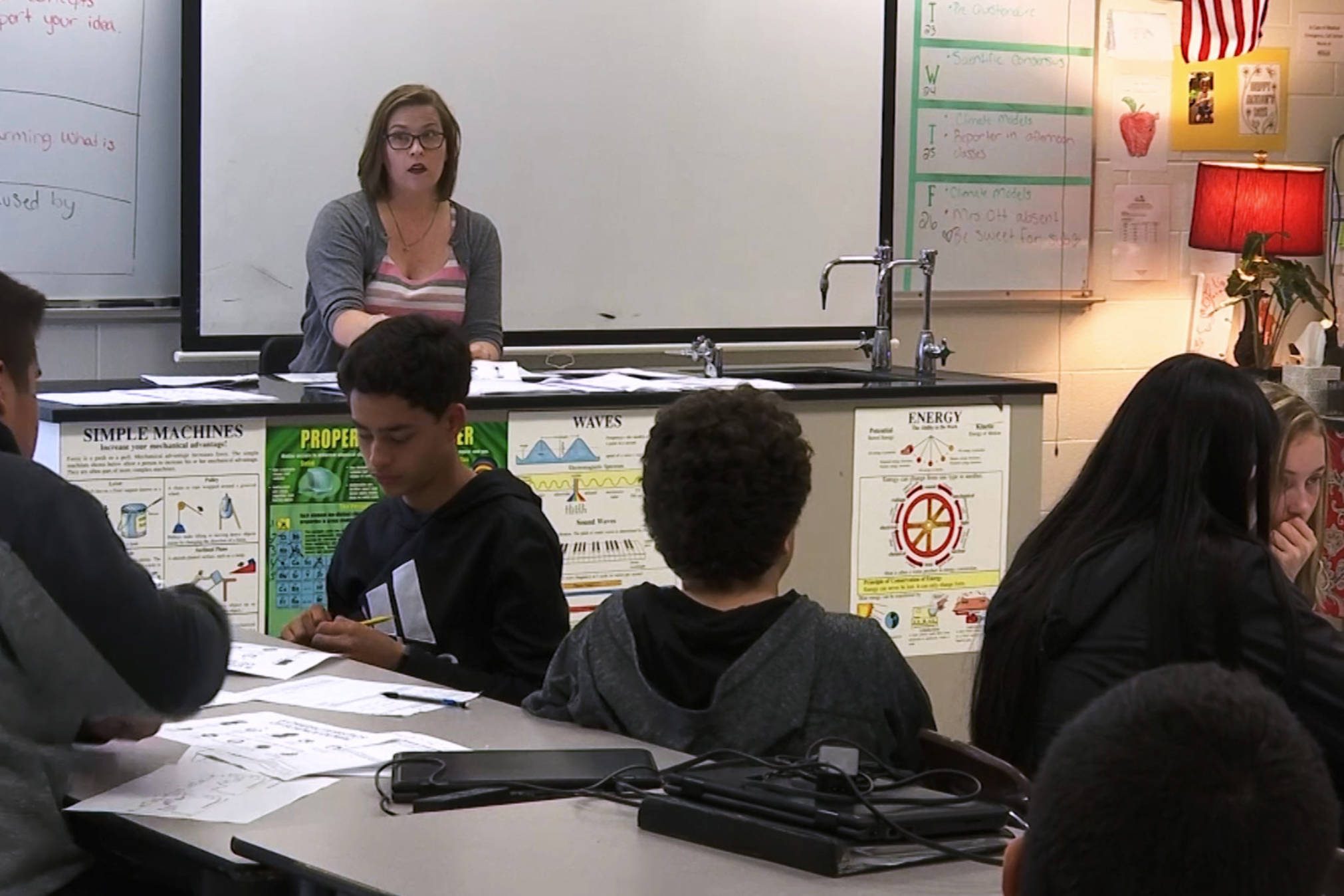A recent Alaska Public Media news article got my attention. The headline reads “In Anchorage, emotionally preparing students for the scary prospect of climate change.”
After reading it, I was scared, but not about climate change.
The reporter visited two Alaska classrooms to learn “how teachers and students are navigating these difficult conversations.”
According to the article, for the past 13 years, teachers have been working with a curriculum that gives little guidance on how to explain the science behind climate change. A middle/high school class teacher who was profiled must “struggle with social complexities of teaching about climate change in an oil state, and then there are the emotional (complexities).”
“The future can appear increasingly uncertain, dangerous and even scary” for kids, who must deal with “increased anxiety and depression as Alaskans grapple with a changing environment.”
[Opinion: Strong support for responsible resource development in Southeast Alaska]
The future is so bleak, explains the instructor, that “some of his younger students have asked him to dial it back.”
Apparently, help is on the way.
The Alaska Department of Education and Early Development is revamping its science standards. The Alaska State Board of Education unanimously approved a draft of new state science standards on March 29, and climate change is included.
As parents, we know how critical it is that basic education be taught in our public schools. These foundational subjects, math, language arts, and science are important enough that our educational institutions are required to measure student proficiency in them at various points between kindergarten and high school.
It’s no secret that Alaska’s scores in all three of these areas have historically been disappointing when compared to other states. Curricula changes can be beneficial, but they also present challenges.
[Opinion: The short-sighted stories of climate change]
This is most evident in science where the temptation to advance political agendas turns controversial issues into opportunities for indoctrination. Climate change is real. Teaching the science behind our changing climate is a good thing. The controversy lies is in what we can realistically do about it.
Today, we are bombarded by politicians and pseudoscientists who claim fossil fuel use must end and that an energy revolution is possible. “Clean energy” in the form of wind turbines, solar arrays and batteries, they say, is about to become incredibly cheap, making a “new energy economy possible.”
Unfortunately, what is unspoken is their general opposition to the expansion of the three most obvious sources of existing clean energy: natural gas, nuclear power and hydroelectric dams — leaving us with few choices.
Mark P. Mills, a senior fellow at the Manhattan Institute and a faculty fellow at Northwestern University, author of “The New Energy Economy: An Exercise In Magical Thinking,” states the problem.
[Opinion: The solution to every problem isn’t always spending more money]
“Never mind that wind and solar — the focus of all “new energy economy” aspirations, including its latest incarnation in the Green New Deal — supply just 2 percent of global energy, despite hundreds of billions of dollars in subsidies.”
“It takes the energy equivalent of about 100 barrels of oil to manufacture a battery that can store the energy equal to one oil barrel. That means that batteries fabricated in China (most already are) by its predominantly coal-powered grid result in more carbon-dioxide emissions than those batteries, coupled with wind/solar, can eliminate. It’s true that wind turbines, solar cells, and batteries will get better, but so, too, will drilling rigs and combustion engines. The idea that ‘old’ hydrocarbon technologies are about to be displaced wholesale by a digital-like, clean-tech energy revolution is a fantasy.”
Mills explains the only way we will change the “energy status-quo” is through foundational discoveries in the sciences — not by subsidizing yesterday’s technologies, including wind and solar.
Allowing students to skip classes to protest on the Capitol steps doesn’t teach them anything about atmospheric science, geology, geography or oceanography.
Emerging technologies that will help solve climate change issues are only possible if our current crop of high school students are grounded in foundational subject matter like mathematics and the earth sciences.
So yes, our schools should be committed to updating and teaching all science subjects — including climate change. That’s the only way the next generation will meet this challenge with more than scare tactics.
• Win Gruening retired as the senior vice president in charge of business banking for Key Bank in 2012. He was born and raised in Juneau and graduated from the U.S. Air Force Academy in 1970. He is active in community affairs as a 30-plus year member of Juneau Downtown Rotary Club and has been involved in various local and statewide organizations. He contributes a regular column to the Juneau Empire. My Turns and Letters to the Editor represent the view of the author, not the view of the Juneau Empire.

